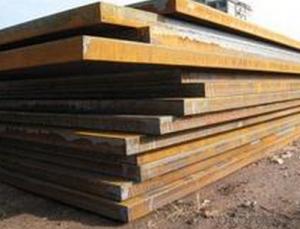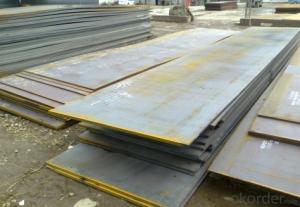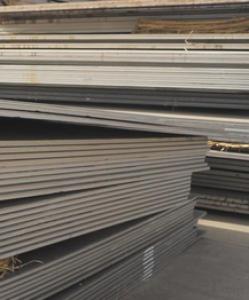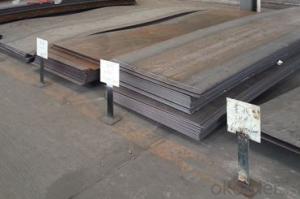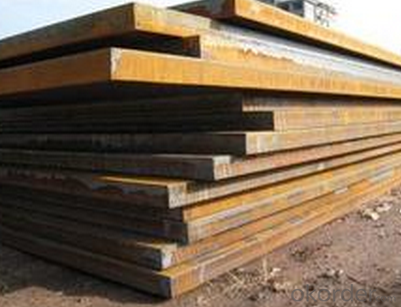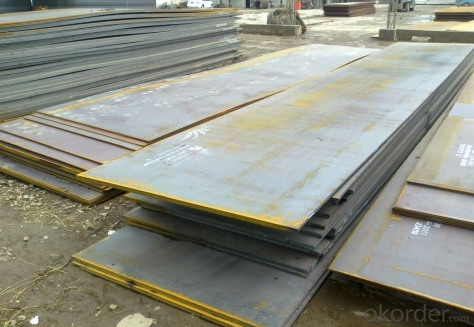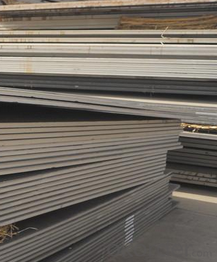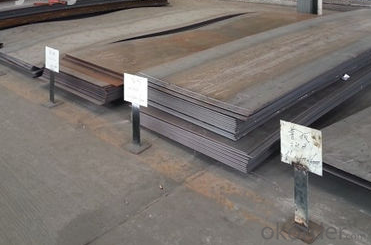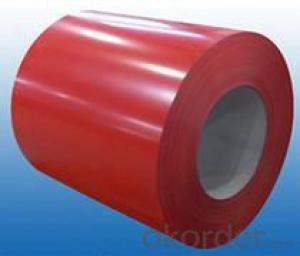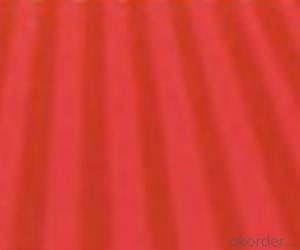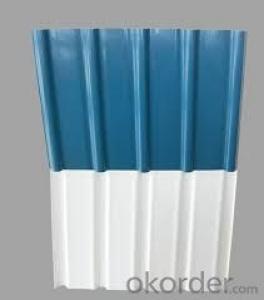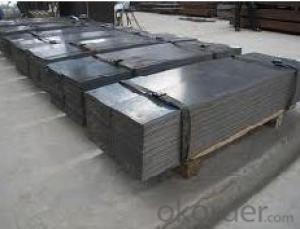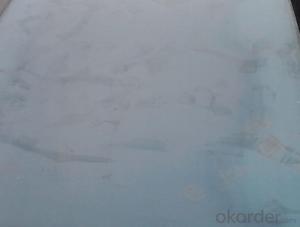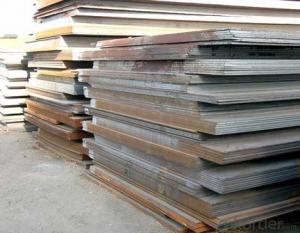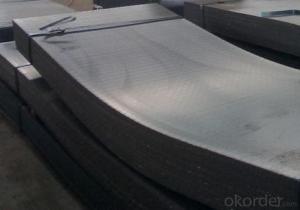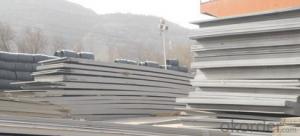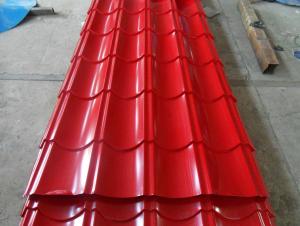Hot Rolled Carbon Steel Plate,Carbon Steel Sheet LRB CNBM
- Loading Port:
- Qingdao
- Payment Terms:
- TT OR LC
- Min Order Qty:
- 10 pc
- Supply Capability:
- 30 pc/month
OKorder Service Pledge
OKorder Financial Service
You Might Also Like
Quick Details
| Standard: | AISI, ASTM, GB, JIS | Grade: | Q195,Q235,Q345,A36,C45 | Thickness: | 1.0-30MM |
| Model Number: | Q235,Q195,Q345 | ||||
| Type: | Steel Plate | Technique: | Hot Rolled | Surface Treatment: | Coated |
| Application: | Ship Plate | Special Use: | Silicon Steel | Width: | 30-2000mm |
| Length: | as your requirement | standard: | hot rolled | Surface: | Anti-rust oil |
Packaging & Delivery
| Packaging Details: | seaworthy packages or as customers' require |
| Delivery Detail: | within 15 days after the advance payment |
Hot rolled steel plate
1 carbon steel plate 3mm thick General information
| Product name | Type | Specification | Implementation of GB | ||
| thick | wide | long | |||
| Carbon structural steel | Q195,Q215, Q235A,Q235B, Q235C,Q255, Q275 | 4-120 | 1500-4500 | 6000-12000 | GB/T700-2006 |
| Low-alloy structural steel | Q295,Q345A, Q345B,Q2345C | 4-120 | 1500-4500 | 6000-12000 | BG/T1591-1994 |
| Quality carbon structural stee | 30-50 | 4-120 | 1500-4500 | 6000-12000 | BG/T699-1999 |
| Ship steel | CCSA,CCSB | 4-120 | 1500-4500 | 6000-12000 | materials and welding condition |
| CCSAH32,CCSAH36 CCSDH32,CCSDH36 | 4-120 | 1500-4500 | 6000-12000 | materials and welding condition or GB 712-2000 | |
| Boiler steel | 20g,22Mng, 16Mng,19Mng | 4-120 | 1500-4500 | 6000-12000 | GB 713-1997 |
| Pressure vessel steel | 1622Mng,20R, 15MnVR,15MnVNR | 4-120 | 1500-2700 | 6000-12000 | GB 6654-1996 |
| European standard plate
| S235JR,S235J0, S275JR,S275J0, S275JR2,S355JR, S355J0,S355J2 | 4-120 | 1500-4500 | 6000-12000 | EN 10025 |
| Japanese standard plate | SS400,SS400-B | 4-120 | 1500-4500 | 6000-12000 | JIS G3101-2004 |
2 carbon steel plate 3mm thick detail specification
Material:
A283Gr.D/A573Gr.65,A516Gr65,A516Gr70,A284Gr.D
SS400,SS300,CCSB A36,A32,LRA32,LRB,Q235
Q195,Q235,Q345,SS400,ASTM A36,E235B
Thickness: 4mm-120mm
width: 1500mm-4500mm
Length:2-10m ,accordingly
Thickness | 4-120mm |
Width | 1500-4500mm or as custom's request |
Length | 2-12m,as your requirment |
Technique | Cold rolled or hot rolled |
Surface treatment | Bare, galvanized coated or as customer's requirements. |
Standard | ASTM,EN,GB,JIS,GB |
Material | A283Gr.D/A573Gr.65,A516Gr65,A516Gr70,A284Gr.D SS400,SS300,CCSB A36,A32,LRA32,LRB,Q235 Q195,Q235,Q345,SS400,ASTM A36,E235B |
Terms of Payment | L/C or T/T |
Chemical composition | C≤0.004%;Si≤0.030%; Mn ≤0.17%;P≤0.012%; S≤0.010%; Fe balance |
Delivery Detail | within 30days once receive deposite or confirm L/C |
Packing | Standard export packing,or as requirement |
3 carbon steel plate 3mm thick application:
construction,machinery manufacturing, container manufacturing, shipbuilding, bridge construction. Can also be used to manufacture a variety of containers, the furnace shell, furnace plate, bridge and vehicle static steel plate, low alloy steel plate,shipbuilding plate, boiler plate, pressure vessel plate, pattern plate, tractor parts, automobile frame steel plate and welding components
- Q: Can steel sheets be used for elevator flooring or platforms?
- Yes, steel sheets can be used for elevator flooring or platforms. Steel is a durable and strong material that can support the weight and traffic typically experienced in elevators. It is commonly used in the construction of elevator floors and platforms due to its resilience and safety features.
- Q: How do steel sheets perform in electrical conductivity?
- Steel sheets do not perform well in terms of electrical conductivity. They have relatively low electrical conductivity compared to other metals such as copper or aluminum.
- Q: What is the process of laminating steel sheets?
- To create a composite material that surpasses the strength and durability of conventional steel, the lamination of steel sheets encompasses various sequential steps. Initially, the steel sheets undergo a thorough cleaning and preparation process to eliminate any impurities or contaminants. This step is vital in guaranteeing a robust bond between the layers and preventing any flaws in the end product. Subsequently, an adhesive layer is administered onto one or both sides of the steel sheets. The selection of the adhesive is contingent upon the desired characteristics of the laminated steel, with options ranging from thermosetting resins to thermoplastic materials. Once the adhesive is applied, the steel sheets are assembled, with the adhesive layer(s) sandwiched in between. To initiate the bonding process, the sheets are subjected to intense heat and pressure. This can be achieved through the utilization of a hydraulic press or a hot rolling mill. The combined effect of heat and pressure causes the adhesive to liquefy and flow, forming a sturdy chemical bond between the steel sheets. The application of high pressure ensures the even distribution of the adhesive and fills any gaps or irregularities that may exist between the sheets. Upon the completion of the bonding process, the laminated steel sheets are cooled and trimmed to the desired size and shape. They can then undergo further processing, such as cutting, bending, or welding, to fulfill specific application requirements. In summary, the process of laminating steel sheets encompasses a series of actions, including cleaning and prepping the sheets, adhesive application, sheet stacking, exposure to high temperature and pressure, cooling, and finalizing the shape. This process results in a composite material boasting enhanced strength, corrosion resistance, and other desirable properties when compared to traditional steel.
- Q: Can Q460C steel plate be used as Q235 steel plate?
- Q460C steel plate is superior to Q235 steel in mechanical performance, but Q235 steel plate has lower cost. Therefore, the steel sheet of Q460C material can be used as a Q235 steel plate without considering the cost.
- Q: Can the steel sheets be used for elevator doors?
- Yes, steel sheets can be used for elevator doors.
- Q: How do steel sheets perform in terms of water resistance?
- Steel sheets are highly resistant to water, as they have a protective coating that prevents moisture penetration. This makes them ideal for applications where water exposure is a concern, such as roofing or outdoor structures.
- Q: Are the steel sheets resistant to impact or bending?
- Yes, steel sheets are generally resistant to both impact and bending. Steel is known for its high strength and durability, making it less likely to be affected by external forces such as impacts or bending. This is due to the material's ability to absorb and distribute the energy applied to it, resulting in minimal deformation or damage. However, the specific resistance to impact and bending may vary depending on the thickness, type of steel, and any additional treatments or coatings applied to the sheets.
- Q: What are the different certification standards for steel sheets?
- There are several certification standards that exist for steel sheets, each with their own specific requirements and criteria. Some of the most commonly recognized certification standards for steel sheets include: 1. ASTM International: ASTM A1008/A1008M is a standard specification for cold-rolled, carbon steel sheets. This certification standard ensures that the steel sheets meet specific mechanical properties, chemical composition, and dimensional requirements. 2. American Society of Mechanical Engineers (ASME): ASME SA240 is a specification for chromium and chromium-nickel stainless steel plate, sheet, and strip for pressure vessels and general applications. This certification standard ensures the quality and safety of stainless steel sheets used in various industrial applications. 3. International Organization for Standardization (ISO): ISO 3574 is a standard specification for cold-reduced carbon steel sheet of commercial and drawing qualities. ISO 3574 certification ensures that the steel sheets have specific mechanical properties, surface finish, and dimensions. 4. European Committee for Standardization (CEN): EN 10025 is a European standard for hot-rolled structural steel products. This certification standard covers various grades and dimensions of steel sheets used in construction and engineering applications. 5. Japanese Industrial Standards (JIS): JIS G 3141 is a Japanese standard for cold-reduced carbon steel sheets and strips. This certification standard ensures that the steel sheets meet specific mechanical properties, chemical composition, and dimensional requirements. These are just a few examples of the certification standards available for steel sheets. Depending on the intended application and geographical location, there may be additional regional or industry-specific certification standards that need to be met to ensure the quality and suitability of the steel sheets.
- Q: What is the typical thickness tolerance for steel sheets?
- The steel sheet thickness tolerance can vary depending on the specific industry and application requirements. Different industries or applications may have more stringent tolerance requirements, especially when precision is crucial. In such cases, the tolerance may be tighter. Specialized steel products or specific customer requirements may also lead to different tolerance specifications. Manufacturers employ strict quality control measures to ensure compliance with the desired thickness tolerance. These measures include precise calibration of equipment, regular inspection of raw materials, and comprehensive testing procedures. This helps maintain the integrity and reliability of steel sheets for various applications in industries such as automotive, construction, manufacturing, and more.
- Q: Can steel sheets be used for industrial machinery or equipment?
- Yes, steel sheets can be used for industrial machinery or equipment. Steel sheets are commonly used in the manufacturing and construction industries due to their strength, durability, and versatility. They can be fabricated into various shapes and sizes to suit the specific requirements of different machinery or equipment, making steel sheets a reliable choice for industrial applications.
Send your message to us
Hot Rolled Carbon Steel Plate,Carbon Steel Sheet LRB CNBM
- Loading Port:
- Qingdao
- Payment Terms:
- TT OR LC
- Min Order Qty:
- 10 pc
- Supply Capability:
- 30 pc/month
OKorder Service Pledge
OKorder Financial Service
Similar products
Hot products
Hot Searches
Related keywords
